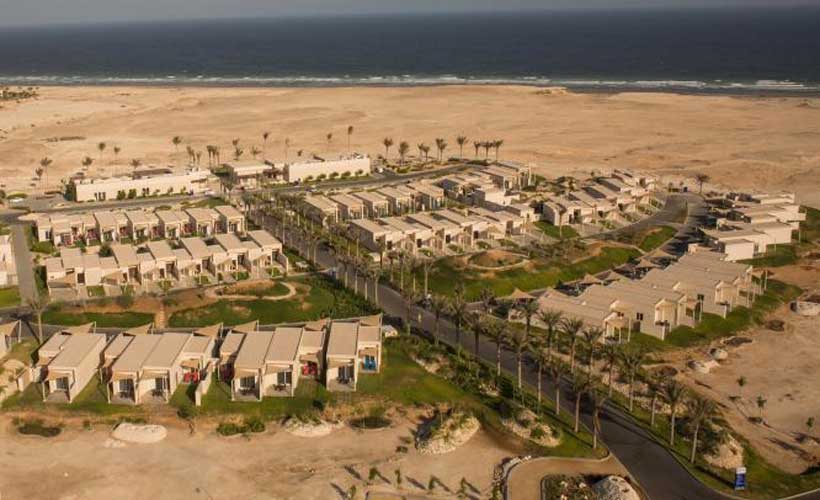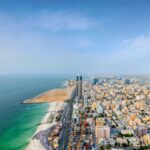Oman’s new economic zone demonstrates the Gulf’s strong intent to enhance its position in global supply chains amid trade wars. The deal between Dubai’s DP World and Oman involves the development of the Al Rawdah Special Economic Zone in Mahadha, located in Oman’s Al Buraimi governorate. This agreement was signed during a UAE delegation’s visit to Oman, led by Sheikh Hamdan bin Mohammed, Crown Prince of Dubai, Deputy Prime Minister, and Minister of Defence.
The agreement was finalized by Sultan bin Sulayem, CEO of DP World, and Ahmed bin Hassan, deputy chairman of Oman’s Public Authority for Special Economic Zones and Free Zones. This deal highlights the Gulf’s plan to strengthen its role in reshaping global supply chains. The Al Rawdah zone will initially focus on automotive manufacturing, textiles, steel fabrication, logistics, and trading. UAE-based companies have expressed interest in exploring investment opportunities within the new zone.
Read More: Salesforce Acquires Informatica: AI Data Gamechanger Deal
Oman’s Economic Growth
The UAE’s experience in developing and managing economic zones offers a valuable framework for Oman. Nasser Saidi, an economist, notes that Oman can benefit from the UAE’s expertise in governance, infrastructure, and investor services. The UAE’s use of smart ports, blockchain in customs clearance, and artificial intelligence in logistics will be crucial for Oman’s development efforts. This collaboration will help Oman integrate advanced technologies into its growing economy.
Nicolas Michelon, a Dubai-based consultant, emphasizes the significance of this agreement in the context of global trade shifts. He explains that U.S. President Donald Trump’s trade wars are pushing companies to rethink their supply networks to avoid tariffs. The growing intensity of these trade wars is driving the demand for free trade agreements. Such agreements are seen as essential for maintaining global market access in light of shifting trade policies.
Strengthening Ties
The UAE and the EU are currently negotiating a trade deal, which will address goods, services, and investment. This trade agreement aims to deepen cooperation in renewable energy, green hydrogen, and critical raw materials. The GCC region, including Oman, is also exploring free trade agreements with countries like Malaysia and the UK. These negotiations reflect the Gulf’s growing importance as a trading partner.
DP World, through its joint venture with Oman, will oversee the development of the Al Rawdah zone. The project’s first phase will cover 14 square kilometers, with plans to expand to 25 square kilometers. This expansion aligns with Oman’s goal to diversify its economy and boost non-oil trade. The UAE’s non-oil trade with Oman reached a record high of $15.2 billion in 2024, signaling a growing economic partnership between the two nations.
Improved Connectivity Enhances Gulf, Asian, and African Trade Routes
The new zone will connect directly to Jebel Ali Port in Dubai and Sohar Port in Oman. This connectivity will improve logistics efficiency, reduce costs, and enhance market access across Gulf, Asian, and African trade routes. The zone will also help create jobs, attract foreign investment, and foster advanced technological expertise. Oman’s investment in specialized zones and infrastructure will position the country as a key player in regional and global trade networks.
By strengthening its infrastructure and integrating with regional supply chains, Oman can enhance its economic resilience. The country’s strategic location between Asia, Europe, and Africa makes it a critical link in global trade. According to Michelon, the GCC countries must work together to maximize their logistics and manufacturing capacities. Connecting the economic zones of individual countries will dramatically increase the region’s logistical flow.
Proximity to Key Ports
The Al Rawdah Special Economic Zone’s strategic location between Sohar and Jebel Ali ports provides a competitive edge. This proximity to major ports ensures that the new manufacturing hub benefits from existing logistics infrastructure. The project’s success will enhance supply chains, re-export activity, and logistics connectivity between Oman, the UAE, and international markets.
Also Read: OPEC+ Oil Production Cuts Remain in Place While Voluntary Output Set to Rise
The Al Rawdah zone aims to attract foreign direct investment, boost industrial output, and create thousands of jobs over the coming decades. While it is not currently located along the Etihad Rail route, future transportation projects may adapt to improve connectivity and ease of access. The development of this zone marks a critical step in Oman’s efforts to integrate itself into the global supply chain network and strengthen its regional economic ties.
Key highlights of the strategic collaboration
- Strategic Partnership: DP World and Oman’s collaboration to develop the Al Rawdah Special Economic Zone strengthens Gulf economies’ global position.
- Sector Focus: Initial phase targets key industries like automotive manufacturing, textiles, logistics, steel fabrication, and trading.
- UAE Expertise: The UAE’s experience in managing economic zones provides a solid framework for Oman’s growth.
- Technological Advancements: Oman will benefit from the UAE’s use of smart ports, blockchain in customs, and AI in logistics.
- Global Supply Chain Shifts: The US trade wars are prompting businesses to rethink supply networks and seek free trade agreements.
- Expanded Connectivity: Direct links to Dubai’s Jebel Ali Port and Oman’s Sohar Port enhance logistics efficiency and market access.
- Economic Growth: The new zone will create thousands of jobs, attract foreign investment, and increase industrial output.
- Strategic Location: The Al Rawdah zone’s proximity to major ports makes it an ideal manufacturing and logistics hub for regional and global trade.
Follow 10X Times for more business news.






